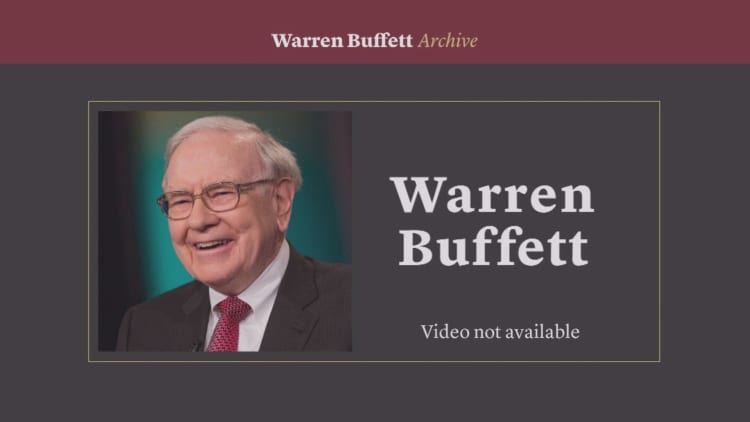In our fearful minds, the bad things that are happening at the moment can feel worse than anything that's happened before, and that things will never get better.
During the Great Recession, Allan Roth, founder of financial advisory firm Wealth Logic in Colorado Springs, Colorado, said people thought, "Never before have our financial institutions failed and needed government bailouts with liquidity drying up."
And between 2000 and 2002, Roth said, people believed that, "Never before have markets been so irrational with the dot-com bubble combined with such tragic and successful terrorist events on American soil."
Now they might be thinking: "We have never had a pandemic crash before," Roth said.
And those anxieties may be at a fever pitch this month, with the S&P 500 down more than 6% between the start of the month and Monday, according to Morningstar Direct.
What will bring an end to the public health crisis is uncertain; even a vaccine might not be all that effective. There's so much we don't know.
But while it's true that each downturn takes a different shape, focusing on what's been consistent throughout history may help calm you down.
1. Market losses are inevitable
In fact, the average person saving for retirement could experience around seven recessions, said Veronica Willis, investment strategy analyst at Wells Fargo Investment Institute.
Since 1926, the S&P 500 has suffered 16 bear markets, according to Fidelity. (A bear market is typically defined as a decline of more than 20%.)
"We generally say markets will go up and down many times during a person's career, so they should take a long-term approach and not react to short-term market changes," said Jeanne Thompson, senior vice president of Fidelity Workplace Consulting.
2. Losses are usually temporary
The good news is that market losses generally don't last for too long.
On March 16 2020, the S&P 500 dropped nearly 12%, according to Morningstar Direct. Within 17 days, it had fully recovered.
How long your savings will take to rebound depends, of course, on how it's allocated.
A portfolio with more than 70% stocks and the rest in bonds and cash took more than two years to recover from the 2007-2008 financial crisis, compared with just seven months for a portfolio with more than 70% in bonds and cash and the rest in stocks, according to calculations provided to CNBC by Charles Schwab.
More from Personal Finance:
What a Biden win may mean for your Social Security benefits
Trump's payroll tax holiday may be a lose-lose for workers and firms
Medicare coverage could expand under a Biden presidency
Bear markets and all, from 1900 to 2017, the average annual return on stocks has been around 8%, after adjusting for inflation, according to calculations by Steve Hanke, a professor of applied economics at Johns Hopkins University in Baltimore.
And despite the wildness of the last half a year, a $300,000 investment in the S&P 500 on March 1 would be worth nearly $337,000 at the end of Monday, Sept. 21, Morningstar Direct found.
"The last six months were crazy, but if you checked your February statement, went to sleep and woke up to your August statement, you'd think things were doing just fine," said certified financial planner Douglas Boneparth, founder and president of Bone Fide Wealth in New York.
To be sure, being overly invested in stocks close to when you'll need your money, whether to fund your retirement or to pay for a child's college tab, can be disastrous.
"If you need a portion of your money in less than five years, regardless of your age, you should not invest that money in stocks; it should be invested in a more conservative asset class," said Rob Williams, vice president of financial planning at Charles Schwab.
3. If you can't stomach some losses, you stand to lose the most
Let's say you had a $1 million portfolio, split between U.S. stocks (70%) and bonds (30%), on Jan. 1 of this year, at which point news of the coronavirus was just starting to trickle out of China.
By Monday, March 23, your savings would be down to about $780,000. Ouch. You might have been tempted to get out.
Yet, if you'd tried to time the market and moved to cash on that Monday, you'd have missed the massive gains the market saw the very next day, on Tuesday, March 24, when the Dow Jones Industrial Average had its biggest one-day spike since 1933.
And that portfolio, as a result, was back up to more than $830,000, according to Morningstar Direct.

"Recoveries can come in fits and starts," Williams said.
He provided some data to prove his point: Over the last 20 or so years, the S&P 500 produced an average annual return of around 6%. But if you missed the best 20 days in the market during that time span, by, for example, moving out in declines, and then reinvesting later, your average annual return would shrivel to 0.1%.
Despite the unprecedented times, some things never change: If investors can't tolerate losses, they'll also miss out on gains.
"Pain is a sign you're investing well," Roth said.


